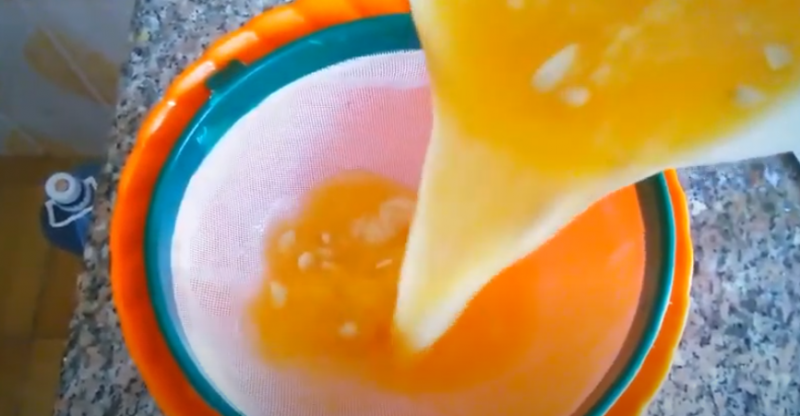How To Juice Oranges With A Juicer
Do You Like to Have Fresh Orange Juice?
Preparing freshly extracted orange juice takes a little more effort than buying a juice box from the shop, but the flavor and freshness difference is unrivaled. Fresh orange juice is delightful and sweet – much sweeter than store-bought ‘from concentrate’ orange juice and devoid of added sugars and other ‘nasty’ chemicals.
Furthermore, while making orange juice at home, you may choose whether to make it with or without pulp. Not to mention the fact that it is abundant in vitamins and has other health benefits. Sugar-free juice has never tasted better than when it was freshly squeezed from the fruit!
How To Make Orange Juice
With a Juicer
- The first step in preparing oranges is to peel them. Then, chop them into smaller pieces to fit into the juicer tube.
- Feed a few through your juicer chute at a time, and you’re done.
Making Use Of a Blender
- Remove and discard the seeds from the oranges if preferred (if straining the juice, this isn’t necessary).
- Combine the orange segments in a blender. Add a little water if needed to help them mix (1/4 cup should be more than enough to avoid over-watering).
- Blend the ingredients till it is delicious and pulpy. Then drain the pulpy liquid through a sieve or nut milk bag, or leave it as is if you want pulpy orange juice (for extra nutrients).
Using a Juicer On The Go
- This definitely doesn’t need much explaining. If you have a citrus juicer, split the fruit in half and place it over the juicer, pressing down and squeezing as much juice as possible while spinning back and forth.
Tips
- Roll the orange over and back on your kitchen surface a few times before squeezing it. The rolling pressure breaks dissolve the apple’s cell walls, enabling the juice to flow more readily.
- Because cold fruit yields less juice, rapidly reheat it before squeezing it. To accomplish this, immerse the orange in boiling water for a few seconds or microwave it for 10 seconds.
- If you don’t have an orange squeezer and have to extract the juice by hand, cut the orange into eight slices instead of two halves. Smaller chunks are simpler to squeeze and hence provide more juice than bigger parts.
- Alternatively, you may peel the fruit, removing all of the flesh and straining it. Using the back of a tablespoon, push the orange juice through the sieve.
Health Benefits Of Orange Juice
Oranges have a lot of major health benefits. The fact that this acidic fruit is abundant in Vitamin C is well known. In fact, one medium cup of orange juice has approximately 100% of your daily vitamin C need. It does, however, include extra vitamins and minerals such as vitamin A, calcium, folate, and iron.
Vitamin C contributes to the health of our immune systems, as well as the health of our gums, wound healing, and bone development. In the meanwhile, potassium helps to prevent heart disease, strokes, and bone loss. It also helps to regulate blood pressure and reduces the risk of kidney stones.
Folate is essential for pregnant women because it reduces the risk of birth defects, and orange juice is one of the best natural sources. Even better, orange juice is high in antioxidants, which are great for fighting free radicals and protecting against a number of chronic illnesses, as well as having anti-inflammatory properties.
In actuality, one of the few drawbacks of drinking large amounts of orange juice (or any fruit juice) is the number of natural carbs in the juice. As a result, I make homemade orange juice once or twice a week and freeze the leftovers to add to smoothies or thaw later.
Frequently Asked Questions
Q1:How much juice does an orange give you?
Ans: one orange provides 4 tablespoons of juice that can be 2oz of juice. it mainly depends upon the type and size of the orange you use.
to fill a typical container of a juicer you’ll need 26 oranges
Q2: Should you juice orange peel?
Ans: You should not juice orange peel if you want the juice to be sweet, as the peel will impart a lot of bitterness. however, the peel contains a lot of nutrients, so if you are drinking it for health benefits, you may want to juice with the peel on.
there are dozens of different types of flavonoids in citrus. flavonoids are plant compounds that typically have high levels of anti-oxidants.
Q3: Can we add honey to orange juice?
Ans: Honey is not needed in orange juice if you are starting with a sweet and flavorful orange such as a valencia and making sure to not juice the skin or seeds which can turn it bitter
Q4: Can you mix orange juice and milk?
Ans: Yes, you can mix orange juice and milk together for a creamy, sweet beverage. however, to avoid curdling the milk, make sure that both the milk and orange juice are at the same temperature when mixing; either refrigerated or at room temperature
Q5: How do you mix milk and orange juice?
Ans: To mix orange juice and milk start by ensuring both are at the same temperature; ideally right out of the refrigerator. add 1.25 parts orange juice to 2 parts milk slowly, stirring constantly. then consume the beverage immediately to avoid the 2 ingredients separating.
The Bottom Line
Morning is a difficult time for many of us. We wake up slowly and vulnerable, and everything seems brighter and louder than it should be. A coffee maker is a necessary complexity to which we have grown used, but a juicer creates far too much noise and requires far too much cleaning.
The obvious solution would be to buy cartons or bottles of pre-squeezed orange and grapefruit juice, but have you seen the prices lately? There’s also unnecessary packaging and, sometimes, additional sugar. You’re significantly better off squeezing your own orange juice, and here’s the best, tidiest, and most effective way to do it.








